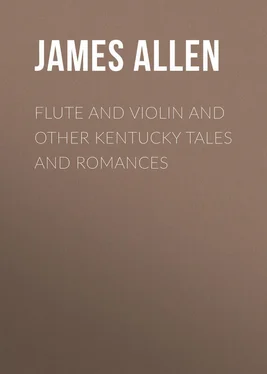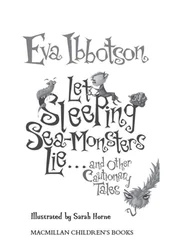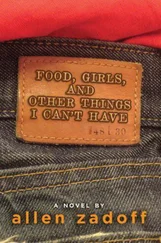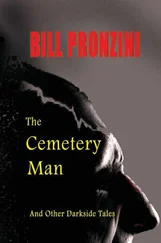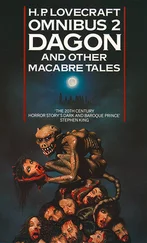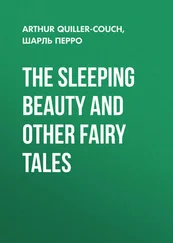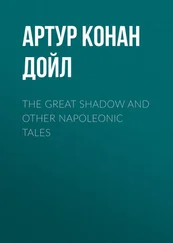James Allen - Flute and Violin and other Kentucky Tales and Romances
Здесь есть возможность читать онлайн «James Allen - Flute and Violin and other Kentucky Tales and Romances» — ознакомительный отрывок электронной книги совершенно бесплатно, а после прочтения отрывка купить полную версию. В некоторых случаях можно слушать аудио, скачать через торрент в формате fb2 и присутствует краткое содержание. ISBN: , Жанр: foreign_prose, на английском языке. Описание произведения, (предисловие) а так же отзывы посетителей доступны на портале библиотеки ЛибКат.
- Название:Flute and Violin and other Kentucky Tales and Romances
- Автор:
- Жанр:
- Год:неизвестен
- ISBN:http://www.gutenberg.org/ebooks/50597
- Рейтинг книги:4 / 5. Голосов: 1
-
Избранное:Добавить в избранное
- Отзывы:
-
Ваша оценка:
- 80
- 1
- 2
- 3
- 4
- 5
Flute and Violin and other Kentucky Tales and Romances: краткое содержание, описание и аннотация
Предлагаем к чтению аннотацию, описание, краткое содержание или предисловие (зависит от того, что написал сам автор книги «Flute and Violin and other Kentucky Tales and Romances»). Если вы не нашли необходимую информацию о книге — напишите в комментариях, мы постараемся отыскать её.
Flute and Violin and other Kentucky Tales and Romances — читать онлайн ознакомительный отрывок
Ниже представлен текст книги, разбитый по страницам. Система сохранения места последней прочитанной страницы, позволяет с удобством читать онлайн бесплатно книгу «Flute and Violin and other Kentucky Tales and Romances», без необходимости каждый раз заново искать на чём Вы остановились. Поставьте закладку, и сможете в любой момент перейти на страницу, на которой закончили чтение.
Интервал:
Закладка:
"Oh, Tom!" cried David, in a whisper of eager confidence, his utterance choked with a sob, "I haven't got any money."
"I'd hate to be as poor as you are," said Tom, contemptuously. "I'm going this evening, and to-night, and as often as I want," and he turned gayly away to join the others.
He was left alone again, and his cup of bitterness, which had been filling drop by drop, now ran over.
Several groups came up just at that moment. There was a pressure and a jostling of the throng. As Mr. Leuba, who had made his way up to the door-keeper, drew a handful of silver from his pocket, some one accidentally struck his elbow, and several pieces fell to the pavement. Then there was laughter and a scrambling as these were picked up and returned. But out through the legs of the crowd one bright silver quarter rolled unseen down the sloping sidewalk towards the spot where David was standing.
It was all done in an instant. He saw it coming; the little crutch was set forward a pace, the little body was swung silently forward, and as the quarter fell over on its shining side, the dirty sole of a brown foot covered it.
The next minute, with a sense of triumph and bounding joy, the poverty-tortured, friendless little thief had crossed the threshold of the museum, and stood face to face with the Redeemer of the world; for the picture was so hung as to catch the eye upon entering, and it arrested his quick, roving glance and held it in awe-stricken fascination. Unconscious of his own movements, he drew nearer and nearer, until he stood a few feet in front of the arc of spectators, with his breathing all but suspended, and one hand crushing the old blue cloth cap against his naked bosom.
It was a strange meeting. The large rude painting possessed no claim to art. But to him it was an overwhelming revelation, for he had never seen any pictures, and he was gifted with an untutored love of painting. Over him, therefore, it exercised an inthralling influence, and it was as though he stood in the visible presence of One whom he knew that the parson preached of and his mother worshipped.
Forgetful of his surroundings, long he stood and gazed. Whether it may have been the thought of the stolen quarter that brought him to himself, at length he drew a deep breath, and looked quickly around with a frightened air. From across the room he saw Mr. Leuba watching him gravely, as it seemed to his guilty conscience, with fearful sternness. A burning flush dyed his face, and he shrank back, concealing himself among the crowd. The next moment, without ever having seen or so much as thought of anything else in the museum, he slipped out into the street.
There the eyes of everybody seemed turned upon him. Where should he go? Not home. Not to Mr. Leuba's music-store. No; he could never look into Mr. Leuba's face again. And Tom? He could hear Tom crying out, wherever he should meet him, "You stole a quarter from father."
In utter terror and shame, he hurried away out to the southern end of the town, where there was an abandoned rope-walk.
It was a neglected place, damp and unhealthy. In the farthest corner of it he lay down and hid himself in a clump of iron-weeds. Slowly the moments dragged themselves along. Of what was he thinking? Of his mother? Of the parson? Of the violin that would now never be his? Of that wonderful sorrowful face which he had seen in the painting? The few noises of the little town grew very faint, the droning of the bumblebee on the purple tufts of the weed overhead very loud, and louder still the beating of his heart against the green grass as he lay on his side, with his head on his blue cap and his cheek in his hand. And then he fell asleep.
When he awoke he started up bewildered. The sun had set, and the heavy dews of twilight were falling. A chill ran through him; and then the recollection of what had happened came over him with a feeling of desolation. When it was quite dark he left his hiding-place and started back up-town.
He could reach home in several ways, but a certain fear drew him into the street which led past the music-store. If he could only see Mr. Leuba, he felt sure that he could tell by the expression of his face whether he had missed the quarter. At some distance off he saw by the light of the windows Mr. Leuba standing in front of his shop talking to a group of men. Noiselessly he drew near, noiselessly he was passing without the courage to look up.
"Stop, David. Come in here a moment. I want to talk to you."
As Mr. Leuba spoke, he apologized to the gentlemen for leaving, and turned back into the rear of the shop. Faint, and trembling so that he could scarcely stand, his face of a deadly whiteness, the boy followed.
"David," said Mr. Leuba – in his whole life he had never spoken so kindly; perhaps his heart had been touched by some belated feeling, as he had studied the boy's face before the picture in the museum, and certainly it had been singularly opened by his good-fortune – "David," he said, "I promised when I got rich enough I'd give Tom a new violin, and give you his old one. Well, I gave him a new one to-day; so here's yours," and going to a corner of the room, he took up the box, brought it back, and would have laid it on the boy's arm, only there was no arm extended to receive it.
"Take it! It's yours!"
"Oh, Mr. Leuba!"
It was all he could say. He had expected to be charged with stealing the quarter, and instead there was held out to him the one treasure in the world – the violin of which he had dreamed so long, for which he had served so faithfully.
"Oh, Mr. Leuba!"
There was a pitiful note in the cry, but the dealer was not the man to hear it, or to notice the look of angelic contrition on the upturned face. He merely took the lad's arm, bent it around the violin, patted the ragged cap, and said, a little impatiently:
"Come, come! they're waiting for me at the door. To-morrow you can come down and run some more errands for me," and he led the way to the front of the shop and resumed his conversation.
Slowly along the dark street the lad toiled homeward with his treasure. At any other time he would have sat down on the first curb-stone, opened the box, and in ecstatic joy have lifted out that peerless instrument; or he would have sped home with it to his mother, flying along on his one crutch as if on the winds of heaven. But now he could not look at it, and something clogged his gait so that he loitered and faltered and sometimes stood still irresolute.
But at last he approached the log-cabin which was his home. A rude fence enclosed the yard, and inside this fence there grew a hedge of lilacs. When he was within a few feet of the gate he paused, and did what he had never done before – he put his face close to the panels of the fence, and with a look of guilt and sorrow peeped through the lilacs at the face of his mother, who was sitting in the light of the open door-way.
She was thinking of him. He knew that by the patient sweetness of her smile. All the heart went out of him at the sight, and hurrying forward, he put the violin down at her feet, and threw his arms around her neck, and buried his head on her bosom.
After he had made his confession, a restless and feverish night he had of it, often springing up from his troubled dreams and calling to her in the darkness. But the next morning he insisted upon getting up for a while.
Towards the afternoon he grew worse again, and took to his bed, the yellow head tossing to and fro, the eyes bright and restless, and his face burning. At length he looked up and said to his mother, in the manner of one who forms a difficult resolution: "Send for the parson. Tell him I am sick and want to see him."
It was this summons that the widow Spurlock had delivered on the Sunday afternoon when the parson had quitted the house with such a cry of distress. He had not so much as thought of the boy since the Friday morning previous.
Читать дальшеИнтервал:
Закладка:
Похожие книги на «Flute and Violin and other Kentucky Tales and Romances»
Представляем Вашему вниманию похожие книги на «Flute and Violin and other Kentucky Tales and Romances» списком для выбора. Мы отобрали схожую по названию и смыслу литературу в надежде предоставить читателям больше вариантов отыскать новые, интересные, ещё непрочитанные произведения.
Обсуждение, отзывы о книге «Flute and Violin and other Kentucky Tales and Romances» и просто собственные мнения читателей. Оставьте ваши комментарии, напишите, что Вы думаете о произведении, его смысле или главных героях. Укажите что конкретно понравилось, а что нет, и почему Вы так считаете.
